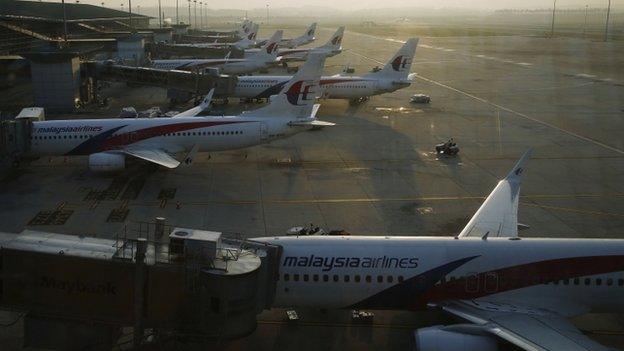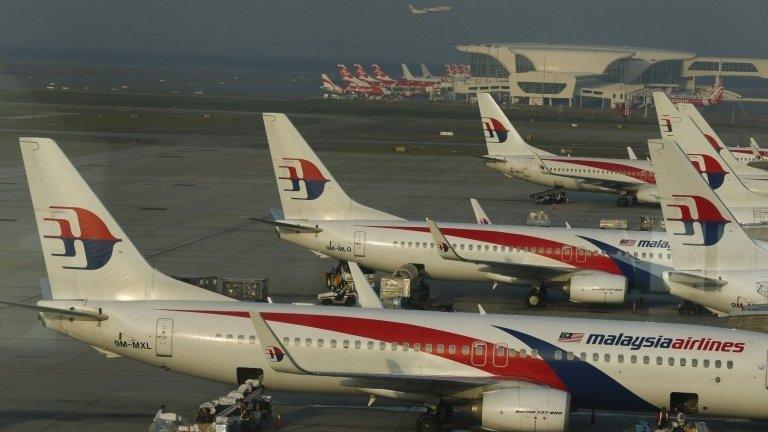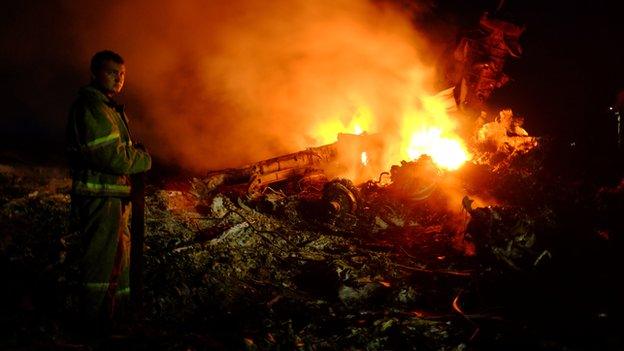Malaysia Airlines to cut 6,000 staff after disasters
- Published

The airline will become completely government owned, and a new chief executive will be put in place
Malaysia Airlines is to cut 6,000 staff as part of recovery plan after being hit by two disasters this year.
The reduction in staff numbers represents around 30% of its workforce of 20,000.
The airline will become completely state owned, and a new chief executive will eventually be put in place.
Investigators continue to hunt for flight MH370, the Kuala Lumpur to Beijing flight which went missing in March.
The MH17 air crash in eastern Ukraine is also under investigation. The plane was shot down on 17 July, with the loss of all 298 people on board.
The recovery plan will cost about 6 billion Malaysian ringgit (£1.1bn, $1.9bn).
Khazanah Nasional, the state investment company that owns a 69% stake in the troubled firm, will take 100% ownership.
"The combination of measures announced today will enable our national airline to be revived," said Khazanah's managing director Azman Mokhtar.
"Success is by no means guaranteed - while it is imperative that MAS [Malaysia Airlines] as a critical enabler in national development is revived, public accountability for the use of the funds mean that it cannot be renewed at any cost," he added.
Recovery plan
Long-haul routes will be slashed, and the airline aims to return to profitability by 2018.
Malaysia Airlines warned on Thursday that it had seen a sharp decline in weekly bookings following the two air disasters.
However, the company has been in trouble over the past few years, and has lost billions of ringgit in that time.
The firm will be completely delisted from the Bursa Malaysia stock exchange by the end of 2014.
Relevant assets, operations and liabilities of Malaysia Airlines will be transferred to a new company by 1 July 2015.
The current chief executive, Ahmad Jauhari Yahya, will continue to lead the firm until the new company is formed next year.
Travel expert Simon Calder said that the staff cuts and business reorganisation should allow the company to turn its fortunes around.
"There is a slice of business to have, but nothing like the scale and dominance it once enjoyed," he said.
Competition from low-cost airlines for short-haul flights, coupled with the expansion of long-haul Gulf carriers, had eaten into the firm's profitability in the past, he added.
- Published28 August 2014

- Published22 August 2014

- Published17 August 2014

- Published17 January 2017
